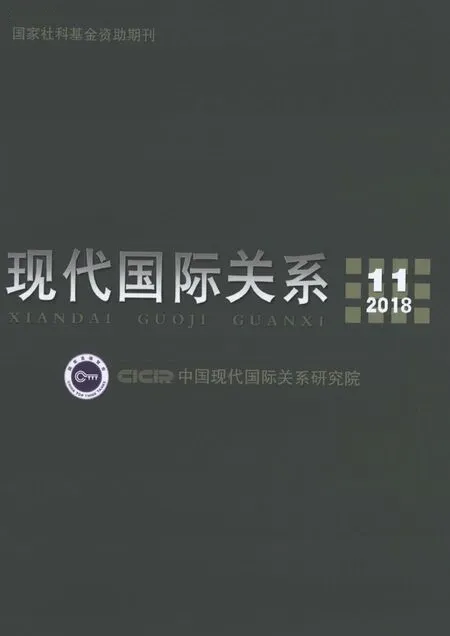Abstracts
WorldTransitionandChina’sResponse
ChenXiangyang
Abstract: The world is undergoing profound changes unseen in a century. World order is reshaping due to balance of power, anti-globalization, informatization, cultural diversity, different international actors and global crisis. Xi Jinping’s diplomatic thinking tells us how to respond to the transition. Keeping a balanced strategy and maintaining important strategic opportunity are two key elements for China’s diplomacy.
Keywords: Xi Jinping’s diplomatic thinking; world transition; strategic opportunity
Japan-IndiaInfrastructureDevelopmentCooperationandtheImpactonChina
ZhangJiye
Abstract: Japan and India are strengthening cooperation in India’s infrastructure projects, which is of economic and geopolitical significance. Infrastructure cooperation is a pivot for their strategic partership. Both countries have profound considerations about their economic, diplomatic and strategic interests. The cooperation has relatively negative impacts on China’s development.
Keywords: Japan; India; infrastructure; Belt and Road Initiative
AnAnalysisoftheConventionontheLegalStatusoftheCaspianSea
KuangZengjun&MaChenchen
Abstract: The Convention on the Legal Status of the Caspian Sea, which signed in 2018 by the five countries bordering the Caspian Sea, is the final result of the three-phase negotiations to resolve the dispute over the legal status of the Caspian Sea and promote energy development. On the basis of fully considering the relevant agreements had reached by the coastal countries, the Convention gives the Caspian Sea a special legal status of non-lake and non-sea and both lake and sea, and establishes a legal system of the Caspian Sea which is similar to the modern marine system. The Convention pays more attention to the security of the Caspian Sea region. However, the Convention still has insufficiencies in the method of demarcation and security systems. In general, the Convention creates opportunities for the development and transportation of Caspian energy, provides the guarantee for the security, stability and prosperity of the Caspian Sea region, and has important influence on countries inside and outside the region. It is also important for China to strengthen energy cooperation with the coastal countries and promote the construction of the Belt and Road Initiative to the Eurasian continent, and it also brings certain challenges of financing, technology and energy security to China’s participation in the Caspian Sea cooperation.
Keywords: The Convention on the Legal Status of the Caspian Sea; demarcation of the Caspian Sea; development of Caspian energy; security of Caspian Sea
CyberSecurityDilemmaandGovernanceMechanism
LuChuanying
Abstract: The Snowden incident has accelerated national competition in the realm of cybersecurity, triggered a cyber arm race, and promoted the formation of an international security dilemma in cyberspace. The underlying reasons for this are the characteristics of cyber technology and the dual-use nature of cyber products and services, as well as the universality and importance of cyberspace for the state and society. Therefore, studying the cyber security dilemma should not only concentrate on international political competition, but also analyze from the perspectives of technology, commerce and politics and establish targeted governance mechanisms in different perspectives.
Keywords: Snowden incident; cyber security; technology nationalism
TheAdjustmentsofUSCyberIntelligencePolicyafterSnowdenLeaks
WangXiaofeng
Abstract: In order to relieve domestic and international pressures due to Snowden leaks, the US government has strengthened supervision on cyber intelligence activities, regulated the collection, storage, application and sharing of cyber intelligence through legislative and administrative measures, and suspended some infringements of personal privacy and business interests. Meanwhile, the US government has increased investment to cope with the opportunities and challenges brought by the rapid development of cyberspace and the application of new technologies such as big data and artificial intelligence. The article argues that the US government will pay more attention to cyber intelligence, and will be more cautious in making cyber intelligence projects covert operations. In the near future, global internet surveillance by the US intelligence community still poses threats on cyberspace and international relations.
Keywords: US; PRISM; Snowden leaks; cyber intelligence

